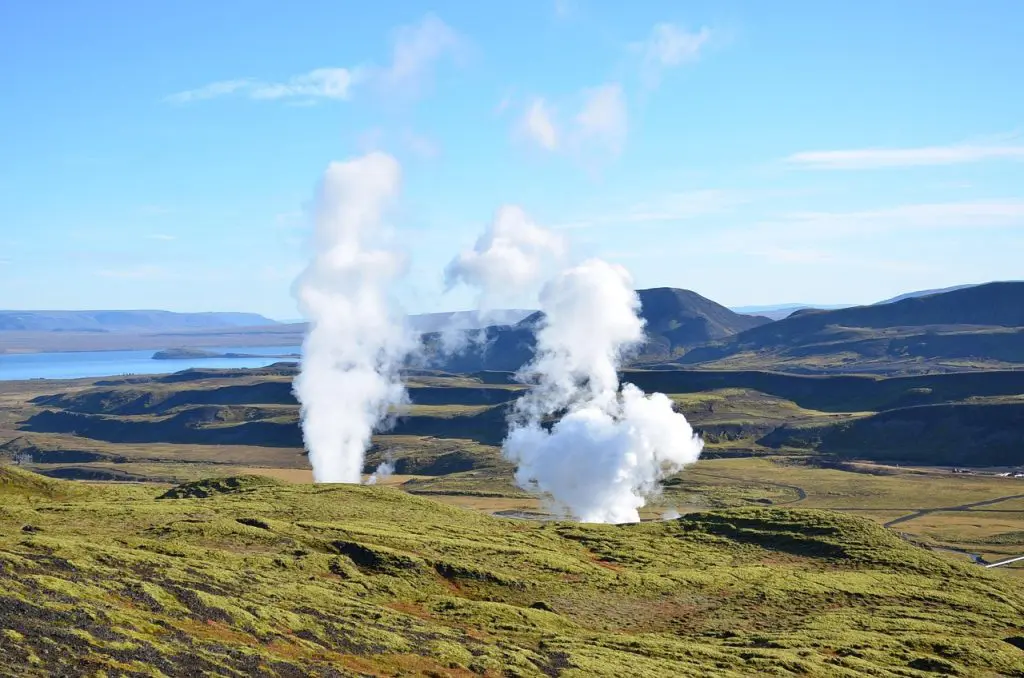
Why Northern Ireland Is a ‘Goldilocks’ Region for Geothermal Heating Northern Ireland is quietly becoming one of the UK’s most promising regions for renewable home heating — not because of wind or sun, but because of the ground beneath our feet. A growing body of geological research and on-the-ground trials is revealing that Northern Ireland’s […]
Northern Ireland is quietly becoming one of the UK’s most promising regions for renewable home heating — not because of wind or sun, but because of the ground beneath our feet. A growing body of geological research and on-the-ground trials is revealing that Northern Ireland’s subsurface is ‘just right’ for technologies like geothermal heating, offering clean, affordable energy and a path toward decarbonising our homes.
Northern Ireland is one of eight regions in the UK identified as a “Geological Super Region”, thanks to its unique subsurface conditions. Specifically, layers of Sherwood Sandstone beneath parts of the country store naturally occurring heat that can be accessed through boreholes — forming the basis for highly efficient ground source heat pump systems.
According to the Geological Survey of Northern Ireland and GeoEnergy NI, this region has the right combination of porous rocks, water-bearing formations, and stable temperatures to make geothermal a reliable source of heat for homes, schools, hospitals, and even entire towns.
‘The principle is that the deeper you go into the earth, the warmer it is,’ says Dr. Marie Cowan, director of the Geological Survey of Northern Ireland. ‘The technology has proven to be reliable, it’s efficient, it helps save on carbon as well.’
One of the most promising examples is a Rural Housing Association complex in Randalstown, Co. Antrim. Here, nine apartments are connected to six boreholes drilled beneath a car park. The system captures heat from the earth, using ground source heat pumps housed in a central plant room.
Resident Emmanuel Burns says his weekly heating bills dropped by more than half, from £30–40 to just £15. This includes heating, hot water, and even cooling in the summer. ‘It’s pretty easy to use, you can adjust the heating to whatever you want,’ he said.
The system was installed by Daly Renewables and runs with 300–400% efficiency compared to traditional gas or oil boilers, requiring less maintenance and producing significantly lower carbon emissions.
This pilot is part of GeoEnergy NI, a Department for the Economy initiative launched in 2023 to test geothermal heating at Randalstown and Stormont Estate in Belfast. The aim is to de-risk geothermal investment and provide data to local councils, housing associations, health trusts, and the private sector to encourage adoption.
‘Whether it’s further drilling, deeper drilling or more studies, the idea is to de-risk that opportunity for the whole of Northern Ireland,’ says Dr. Cowan.
Geothermal is already widely used in Scandinavia, but NI is only now catching up — and the potential is vast. As more geological data becomes available, particularly from deep borehole studies, larger systems could be developed to support whole estates or districts through localised heat networks.
The shift to geothermal energy isn’t just about heat — it’s also an opportunity to rethink how we design energy systems for material sustainability. Ground source heat systems, unlike fossil fuel boilers, often use modular components that are durable and maintainable over decades. Components such as heat pumps and circulation systems can be refurbished or repurposed, supporting a circular economy approach that reduces waste and extends equipment life.
As demand for green technologies grows, there’s increasing interest in ensuring the materials used — like copper, steel, and refrigerants — are sustainably sourced, recycled, or replaced with lower-impact alternatives.
Despite the promise, barriers remain. Northern Ireland is the only part of the UK or Ireland without a renewable heat incentive for private homeowners. While the Department for the Economy has consulted on decarbonising residential heat, no financial support scheme is yet in place.
Scaling geothermal also requires more public awareness, trained installers, and careful regulatory planning to manage underground resources safely.
For geothermal to scale in Northern Ireland, policy alignment and financial mechanisms must evolve. These could include:
Renewable Heat Incentives (e.g., capital grants or tariff-based supports).
Geothermal heat zoning: prioritising geothermal for new housing estates or retrofits in suitable areas.
Planning guidance for councils, integrating geological data into housing and infrastructure development.
Skills investment: in plumbing, drilling, and heat system design.
Without this, even the best geology can go untapped. Northern Ireland has technical potential and local expertise — but needs long-term political and regulatory commitment to unlock it.
Beyond cutting emissions and bills, geothermal could help develop a new green jobs sector in Northern Ireland — spanning mechanical, electrical, and plumbing trades, engineering, data monitoring, and geology. GeoEnergy NI highlights this potential as part of a broader clean energy transition, aligned with the UK’s net-zero goals.
Geothermal heating in Northern Ireland isn’t a distant future — it’s already working in places like Randalstown. With ideal geological conditions, proven pilot projects, and strong public interest in cleaner energy, Northern Ireland has the potential to lead the UK in ground-based renewable heating.
However, to realise this potential, policy support and infrastructure investment must catch up with the science. If that happens, the rocks that once powered oil and gas exploration could become the cornerstone of Northern Ireland’s clean energy future.
At All-Ireland Sustainability, we’re committed to building a greener, fairer island—together. Stay informed on the latest environmental initiatives, community action, and policy developments shaping sustainability across Ireland, North and South.
👉 Sign up for our newsletter today and be the first to hear about upcoming events, expert insights, and ways to get involved.
Whether you’re a seasoned advocate or just starting your journey, new members are always welcome—your voice matters.
Subscribe now and be part of the All-Ireland Sustainability network.